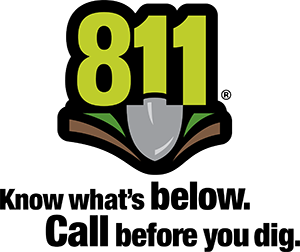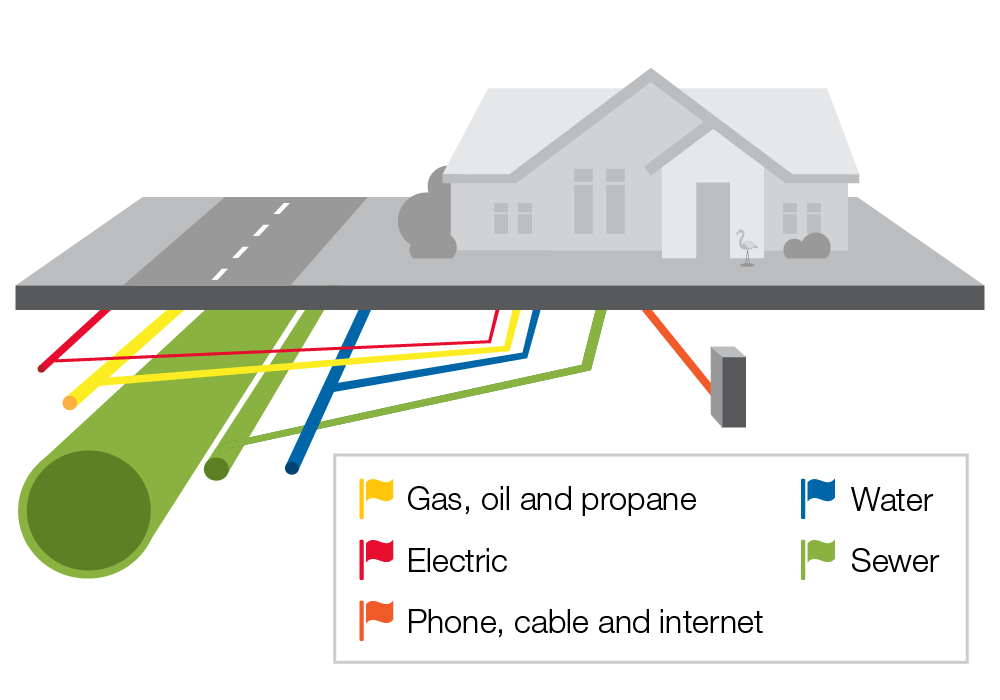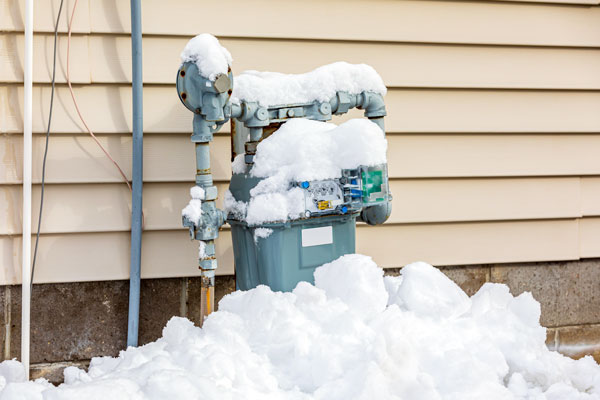Shovel out safety hazards with these outdoor natural gas tips
Whether you're doing yard work, grilling a barbecue or playing catch with the kids, we all love spending time outside during the warmer weather months. But, it's important to remember that following basic natural gas and digging safety practices can help you avoid property damage, injury or even potentially fatal accidents. Refresh yourself on outdoor natural gas safety so you can focus on fun and getting your projects done!
Call before you dig – it's the law
Any time you plan to dig on your property, you must dial 811 at least 48 hours (not including the day of the notice, weekends and holidays) before digging to have utilities located. Professional locators will mark MidAmerican-owned underground gas and electric facilities and other underground utilities, free of charge.
Learn more about digging safety
Any time you plan to dig on your property, you must dial 811 at least 48 hours (not including the day of the notice, weekends and holidays) before digging to have utilities located. Professional locators will mark MidAmerican-owned underground gas and electric facilities and other underground utilities, free of charge.
Learn more about digging safety


![[DECORATION] gas pipe icon](https://www.midamericanenergy.com/media/images/gas-safety-pipe-icon.png)
Locate customer-owned pipelines
Though 811's professional locators mark MidAmerican-owned pipelines, they do not mark customer-owned pipelines, such as those that run to a natural gas grill, garage or outbuilding. If you plan to dig on your property, you will need to contact a qualified plumbing and heating dealer or a qualified private contractor to mark pipes that you own.
Though 811's professional locators mark MidAmerican-owned pipelines, they do not mark customer-owned pipelines, such as those that run to a natural gas grill, garage or outbuilding. If you plan to dig on your property, you will need to contact a qualified plumbing and heating dealer or a qualified private contractor to mark pipes that you own.
![[DECORATION] flag icon](https://www.midamericanenergy.com/media/images/gas-safety-flag-icon.png)
Leave markers in place until the work is done
Preserve location marks and flags until your project is complete to avoid potential injury and keep your neighborhood free from service disruption.
Preserve location marks and flags until your project is complete to avoid potential injury and keep your neighborhood free from service disruption.
![[DECORATION] gas meter icon](https://www.midamericanenergy.com/media/images/gas-safety-meter-icon.png)
Let us know if you need to move your gas meter
If your upcoming work may require relocating a gas meter, let us know at 888-427-5632.
If your upcoming work may require relocating a gas meter, let us know at 888-427-5632.
![[DECORATION] flow valve icon](https://www.midamericanenergy.com/media/images/gas-safety-flowvalve-icon.png)
Request an excess flow valve
In the event your gas service line is damaged, an excess flow valve (EFV) can restrict or stop your gas flow to help prevent property damage and/or injury. Many customers already have an EFV installed on their existing gas service line, but if you don't have one, you may be eligible to request we install one for you.
See EFV eligibility, cost and frequently asked questions
In the event your gas service line is damaged, an excess flow valve (EFV) can restrict or stop your gas flow to help prevent property damage and/or injury. Many customers already have an EFV installed on their existing gas service line, but if you don't have one, you may be eligible to request we install one for you.
See EFV eligibility, cost and frequently asked questions

Obstructions around your meter can cause safety hazards. If you notice ice buildup on your meter during the winter, call us at 888-427-5632, and we’ll be there to help. And, if you are planning renovations or construction work that may require relocating your gas meter, notify us as soon as possible.
What to do if you smell, see or hear natural gas
- Leave the area immediately. Do not attempt to locate the leak, and do not touch anything that could cause a spark.
- Call us at 800-595-5325 and call 911 from another location at a safe distance. We will investigate the situation at no cost to you.
- Do not reenter the area until you have been advised that it is safe.